Jiaqi Lv
MultiSurv: A Multimodal Deep Survival Framework for Prostrate and Bladder Cancer
Sep 05, 2025Abstract:Accurate prediction of time-to-event outcomes is a central challenge in oncology, with significant implications for treatment planning and patient management. In this work, we present MultiSurv, a multimodal deep survival model utilising DeepHit with a projection layer and inter-modality cross-attention, which integrates heterogeneous patient data, including clinical, MRI, RNA-seq and whole-slide pathology features. The model is designed to capture complementary prognostic signals across modalities and estimate individualised time-to-biochemical recurrence in prostate cancer and time-to-cancer recurrence in bladder cancer. Our approach was evaluated in the context of the CHIMERA Grand Challenge, across two of the three provided tasks. For Task 1 (prostate cancer bio-chemical recurrence prediction), the proposed framework achieved a concordance index (C-index) of 0.843 on 5-folds cross-validation and 0.818 on CHIMERA development set, demonstrating robust discriminatory ability. For Task 3 (bladder cancer recurrence prediction), the model obtained a C-index of 0.662 on 5-folds cross-validation and 0.457 on development set, highlighting its adaptability and potential for clinical translation. These results suggest that leveraging multimodal integration with deep survival learning provides a promising pathway toward personalised risk stratification in prostate and bladder cancer. Beyond the challenge setting, our framework is broadly applicable to survival prediction tasks involving heterogeneous biomedical data.
HPCTransCompile: An AI Compiler Generated Dataset for High-Performance CUDA Transpilation and LLM Preliminary Exploration
Jun 12, 2025Abstract:The rapid growth of deep learning has driven exponential increases in model parameters and computational demands. NVIDIA GPUs and their CUDA-based software ecosystem provide robust support for parallel computing, significantly alleviating computational bottlenecks. Meanwhile, due to the cultivation of user programming habits and the high performance of GPUs, the CUDA ecosystem has established a dominant position in the field of parallel software. This dominance requires other hardware platforms to support CUDA-based software with performance portability. However, translating CUDA code to other platforms poses significant challenges due to differences in parallel programming paradigms and hardware architectures. Existing approaches rely on language extensions, domain-specific languages (DSLs), or compilers but face limitations in workload coverage and generalizability. Moreover, these methods often incur substantial development costs. Recently, LLMs have demonstrated extraordinary potential in various vertical domains, especially in code-related tasks. However, the performance of existing LLMs in CUDA transpilation, particularly for high-performance code, remains suboptimal. The main reason for this limitation lies in the lack of high-quality training datasets. To address these challenges, we propose a novel framework for generating high-performance CUDA and corresponding platform code pairs, leveraging AI compiler and automatic optimization technology. We further enhance the framework with a graph-based data augmentation method and introduce HPCTransEval, a benchmark for evaluating LLM performance on CUDA transpilation. We conduct experiments using CUDA-to-CPU transpilation as a case study on leading LLMs. The result demonstrates that our framework significantly improves CUDA transpilation, highlighting the potential of LLMs to address compatibility challenges within the CUDA ecosystem.
GENE-FL: Gene-Driven Parameter-Efficient Dynamic Federated Learning
Apr 20, 2025Abstract:Real-world \underline{F}ederated \underline{L}earning systems often encounter \underline{D}ynamic clients with \underline{A}gnostic and highly heterogeneous data distributions (DAFL), which pose challenges for efficient communication and model initialization. To address these challenges, we draw inspiration from the recently proposed Learngene paradigm, which compresses the large-scale model into lightweight, cross-task meta-information fragments. Learngene effectively encapsulates and communicates core knowledge, making it particularly well-suited for DAFL, where dynamic client participation requires communication efficiency and rapid adaptation to new data distributions. Based on this insight, we propose a Gene-driven parameter-efficient dynamic Federated Learning (GENE-FL) framework. First, local models perform quadratic constraints based on parameters with high Fisher values in the global model, as these parameters are considered to encapsulate generalizable knowledge. Second, we apply the strategy of parameter sensitivity analysis in local model parameters to condense the \textit{learnGene} for interaction. Finally, the server aggregates these small-scale trained \textit{learnGene}s into a robust \textit{learnGene} with cross-task generalization capability, facilitating the rapid initialization of dynamic agnostic client models. Extensive experimental results demonstrate that GENE-FL reduces \textbf{4 $\times$} communication costs compared to FEDAVG and effectively initializes agnostic client models with only about \textbf{9.04} MB.
FedEPA: Enhancing Personalization and Modality Alignment in Multimodal Federated Learning
Apr 16, 2025Abstract:Federated Learning (FL) enables decentralized model training across multiple parties while preserving privacy. However, most FL systems assume clients hold only unimodal data, limiting their real-world applicability, as institutions often possess multimodal data. Moreover, the lack of labeled data further constrains the performance of most FL methods. In this work, we propose FedEPA, a novel FL framework for multimodal learning. FedEPA employs a personalized local model aggregation strategy that leverages labeled data on clients to learn personalized aggregation weights, thereby alleviating the impact of data heterogeneity. We also propose an unsupervised modality alignment strategy that works effectively with limited labeled data. Specifically, we decompose multimodal features into aligned features and context features. We then employ contrastive learning to align the aligned features across modalities, ensure the independence between aligned features and context features within each modality, and promote the diversity of context features. A multimodal feature fusion strategy is introduced to obtain a joint embedding. The experimental results show that FedEPA significantly outperforms existing FL methods in multimodal classification tasks under limited labeled data conditions.
Deep Learning Based Segmentation of Blood Vessels from H&E Stained Oesophageal Adenocarcinoma Whole-Slide Images
Jan 21, 2025Abstract:Blood vessels (BVs) play a critical role in the Tumor Micro-Environment (TME), potentially influencing cancer progression and treatment response. However, manually quantifying BVs in Hematoxylin and Eosin (H&E) stained images is challenging and labor-intensive due to their heterogeneous appearances. We propose a novel approach of constructing guiding maps to improve the performance of state-of-the-art segmentation models for BV segmentation, the guiding maps encourage the models to learn representative features of BVs. This is particularly beneficial for computational pathology, where labeled training data is often limited and large models are prone to overfitting. We have quantitative and qualitative results to demonstrate the efficacy of our approach in improving segmentation accuracy. In future, we plan to validate this method to segment BVs across various tissue types and investigate the role of cellular structures in relation to BVs in the TME.
Towards Effective Visual Representations for Partial-Label Learning
May 10, 2023Abstract:Under partial-label learning (PLL) where, for each training instance, only a set of ambiguous candidate labels containing the unknown true label is accessible, contrastive learning has recently boosted the performance of PLL on vision tasks, attributed to representations learned by contrasting the same/different classes of entities. Without access to true labels, positive points are predicted using pseudo-labels that are inherently noisy, and negative points often require large batches or momentum encoders, resulting in unreliable similarity information and a high computational overhead. In this paper, we rethink a state-of-the-art contrastive PLL method PiCO[24], inspiring the design of a simple framework termed PaPi (Partial-label learning with a guided Prototypical classifier), which demonstrates significant scope for improvement in representation learning, thus contributing to label disambiguation. PaPi guides the optimization of a prototypical classifier by a linear classifier with which they share the same feature encoder, thus explicitly encouraging the representation to reflect visual similarity between categories. It is also technically appealing, as PaPi requires only a few components in PiCO with the opposite direction of guidance, and directly eliminates the contrastive learning module that would introduce noise and consume computational resources. We empirically demonstrate that PaPi significantly outperforms other PLL methods on various image classification tasks.
Progressive Purification for Instance-Dependent Partial Label Learning
Jun 02, 2022
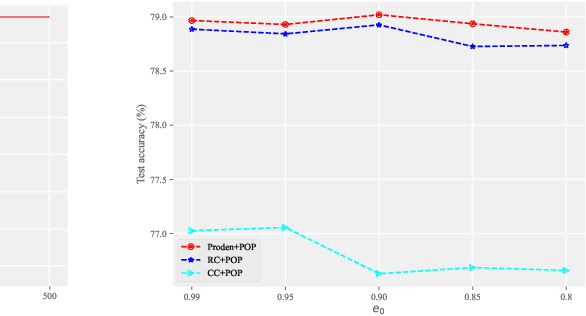


Abstract:Partial label learning (PLL) aims to train multi-class classifiers from instances with partial labels (PLs)-a PL for an instance is a set of candidate labels where a fixed but unknown candidate is the true label. In the last few years, the instance-independent generation process of PLs has been extensively studied, on the basis of which many practical and theoretical advances have been made in PLL, whereas relatively less attention has been paid to the practical setting of instance-dependent PLs, namely, the PL depends not only on the true label but the instance itself. In this paper, we propose a theoretically grounded and practically effective approach called PrOgressive Purification (POP) for instance-dependent PLL: in each epoch, POP updates the learning model while purifying each PL for the next epoch of the model training by progressively moving out false candidate labels. Theoretically, we prove that POP enlarges the region appropriately fast where the model is reliable, and eventually approximates the Bayes optimal classifier with mild assumptions; technically, POP is flexible with arbitrary losses and compatible with deep networks, so that the previous advanced PLL losses can be embedded in it and the performance is often significantly improved.
One Positive Label is Sufficient: Single-Positive Multi-Label Learning with Label Enhancement
Jun 01, 2022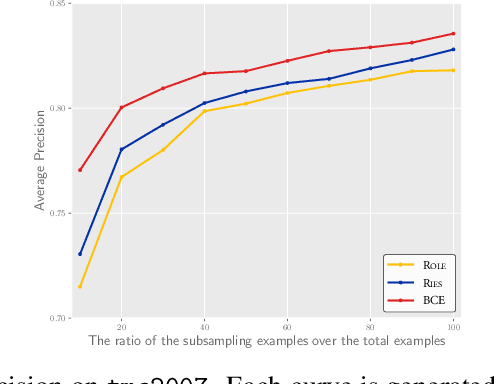



Abstract:Multi-label learning (MLL) learns from the examples each associated with multiple labels simultaneously, where the high cost of annotating all relevant labels for each training example is challenging for real-world applications. To cope with the challenge, we investigate single-positive multi-label learning (SPMLL) where each example is annotated with only one relevant label and show that one can successfully learn a theoretically grounded multi-label classifier for the problem. In this paper, a novel SPMLL method named {\proposed}, i.e., Single-positive MultI-label learning with Label Enhancement, is proposed. Specifically, an unbiased risk estimator is derived, which could be guaranteed to approximately converge to the optimal risk minimizer of fully supervised learning and shows that one positive label of each instance is sufficient to train the predictive model. Then, the corresponding empirical risk estimator is established via recovering the latent soft label as a label enhancement process, where the posterior density of the latent soft labels is approximate to the variational Beta density parameterized by an inference model. Experiments on benchmark datasets validate the effectiveness of the proposed method.
On the Robustness of Average Losses for Partial-Label Learning
Jun 11, 2021



Abstract:Partial-label (PL) learning is a typical weakly supervised classification problem, where a PL of an instance is a set of candidate labels such that a fixed but unknown candidate is the true label. For PL learning, there are two lines of research: (a) the identification-based strategy (IBS) purifies each label set and extracts the true label; (b) the average-based strategy (ABS) treats all candidates equally for training. In the past two decades, IBS was a much hotter topic than ABS, since it was believed that IBS is more promising. In this paper, we theoretically analyze ABS and find it also promising in the sense of the robustness of its loss functions. Specifically, we consider five problem settings for the generation of clean or noisy PLs, and we prove that average PL losses with bounded multi-class losses are always robust under mild assumptions on the domination of true labels, while average PL losses with unbounded multi-class losses (e.g., the cross-entropy loss) may not be robust. We also conduct experiments to validate our theoretical findings. Note that IBS is heuristic, and we cannot prove its robustness by a similar proof technique; hence, ABS is more advantageous from a theoretical point of view, and it is worth paying attention to the design of more advanced PL learning methods following ABS.
Compact Learning for Multi-Label Classification
Sep 18, 2020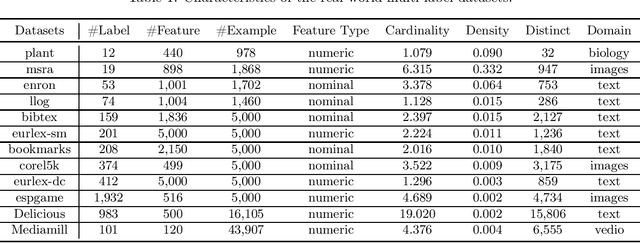
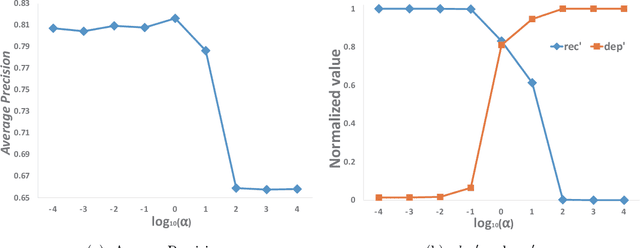
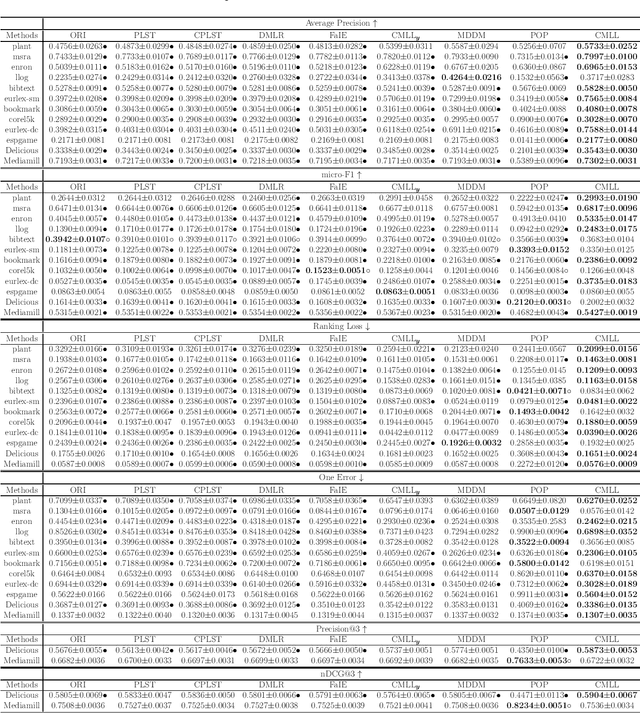
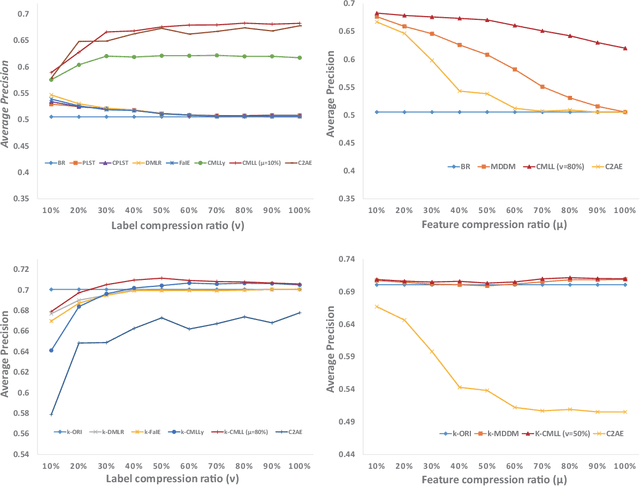
Abstract:Multi-label classification (MLC) studies the problem where each instance is associated with multiple relevant labels, which leads to the exponential growth of output space. MLC encourages a popular framework named label compression (LC) for capturing label dependency with dimension reduction. Nevertheless, most existing LC methods failed to consider the influence of the feature space or misguided by original problematic features, so that may result in performance degeneration. In this paper, we present a compact learning (CL) framework to embed the features and labels simultaneously and with mutual guidance. The proposal is a versatile concept, hence the embedding way is arbitrary and independent of the subsequent learning process. Following its spirit, a simple yet effective implementation called compact multi-label learning (CMLL) is proposed to learn a compact low-dimensional representation for both spaces. CMLL maximizes the dependence between the embedded spaces of the labels and features, and minimizes the loss of label space recovery concurrently. Theoretically, we provide a general analysis for different embedding methods. Practically, we conduct extensive experiments to validate the effectiveness of the proposed method.
 Add to Chrome
Add to Chrome Add to Firefox
Add to Firefox Add to Edge
Add to Edge